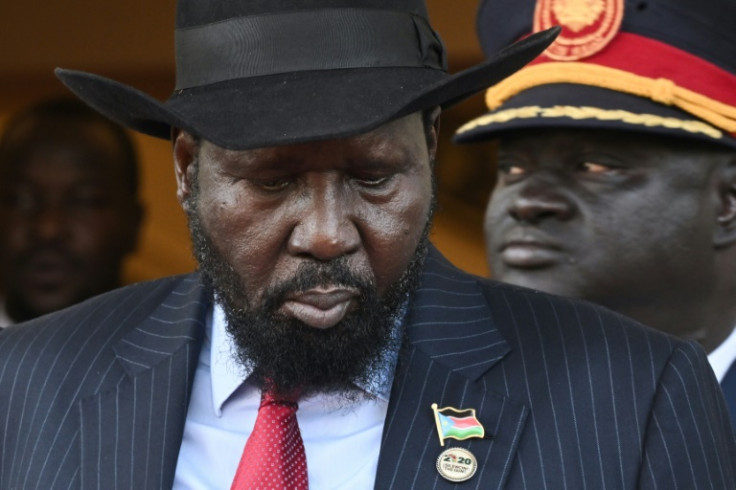South Sudan's Kiir Pledges Country's First Election

South Sudan's leader Salva Kiir on Tuesday pledged that delayed elections set for next year would go ahead as planned and that he would run for president.
Kiir, a towering guerrilla commander, has been the nation's only president since he led it to independence from Sudan in 2011.
The world's youngest nation has lurched from crisis to crisis during the tenure and is held together by a fragile unity government between Kiir and vice president Riek Machar.
It was meant to conclude a transition period with elections in February 2023, but the government has so far failed to meet key provisions of the agreement, including drafting a constitution.
"I welcome the endorsement to run for presidency in 2024," Kiir told supporters of his governing Sudan People's Liberation Movement (SPLM) party, describing it as a "historic event".
"We are committed to implement the chapters in the revitalised peace agreement as stated and the election will take place in 2024."
No other candidate has declared their candidacy but historic foe Machar is expected to run.
In August, the two leaders extended their transitional government by two years beyond the agreed deadline citing the need to address challenges that impeded the implementation of the peace agreement.
Kiir said on Tuesday that those challenges would be addressed "before the elections" set for December next year.
One of the poorest countries on the planet despite large oil reserves, South Sudan has spent almost half of its life as a nation at war.
Almost 400,000 people died in a five-year civil war before Kiir and Machar signed a peace deal in 2018 and formed the unity government.
Since then, the country has battled flooding, hunger, violence and political bickering as the promises of the peace agreement have failed to materialise.
The United Nations has repeatedly criticised South Sudan's leadership for its role in stoking violence, cracking down on political freedoms and plundering public coffers.
The UN envoy to South Sudan Nicholas Haysom warned in March the country faced a "make or break" year in 2023, and its leaders must implement the peace agreement to hold "inclusive and credible" elections next year.
Haysom stressed Juba had "stated clearly that there would be no more extensions of the timelines" for elections at the end of 2024.
© Copyright AFP {{Year}}. All rights reserved.




















